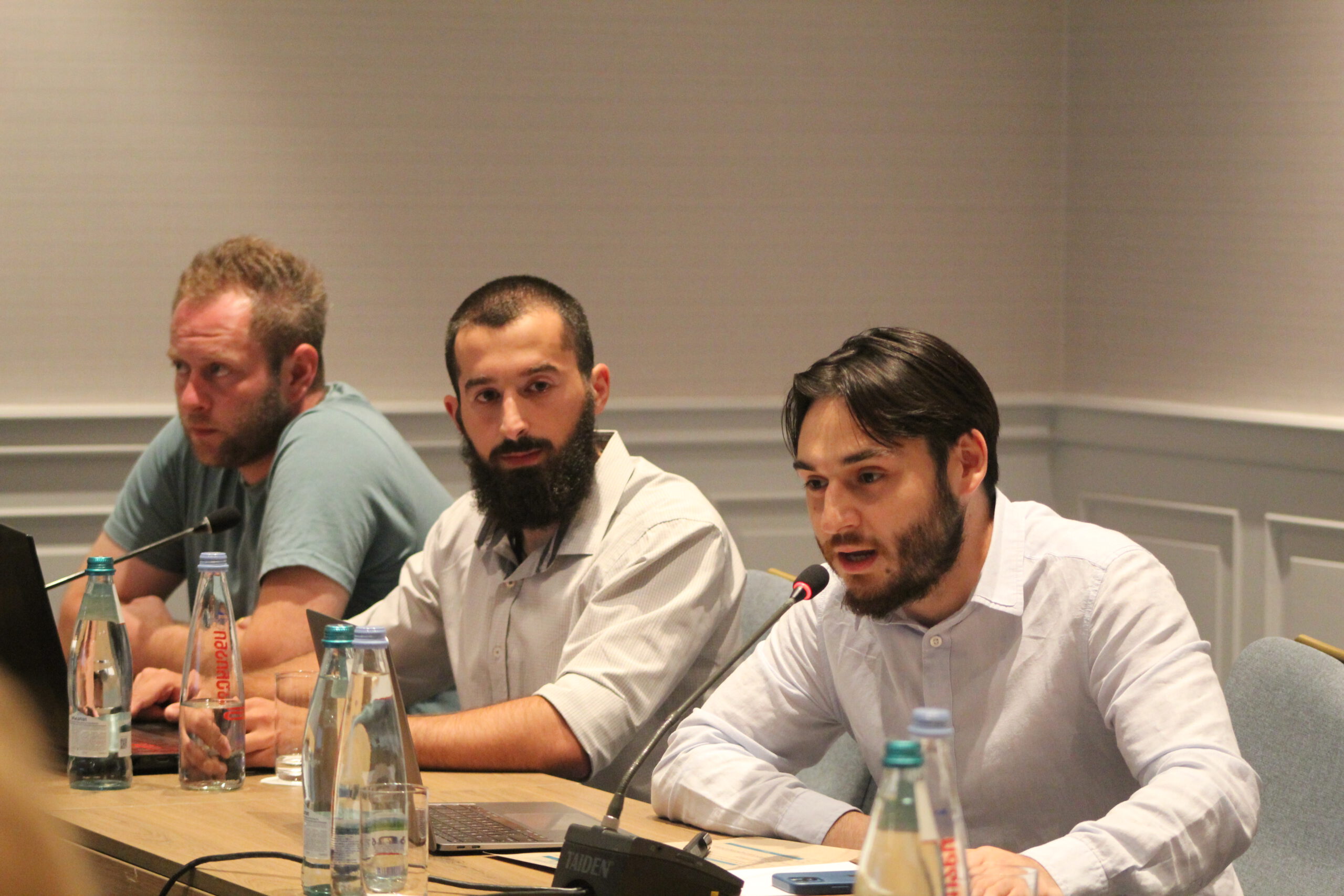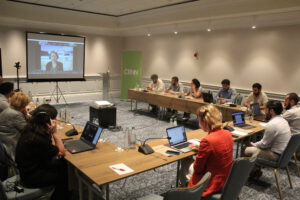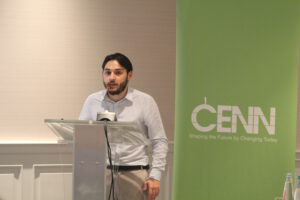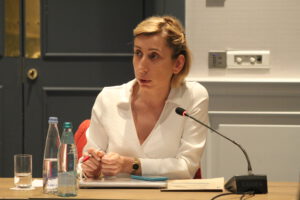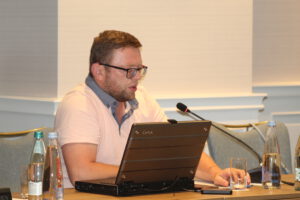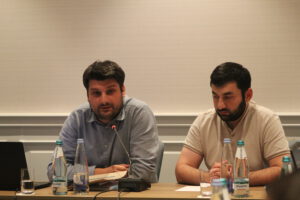CENN, with financial support from the US Forest Service (USFS) and the Austrian Development Cooperation (ADC), hosted a summary meeting within the framework of the “Watersheds, Forest Management, and DRR in Georgia” initiative. The purpose of the meeting was to present assessments of the condition of degraded basins identified as a result of the expeditions and basin management plans, which were prepared according to the watershed condition framework of the US Forest Service.
“We are pleased to summarize the activities undertaken to promote integrated watershed management with our key partners: the National Environment Agency, the Forestry Agency and the Department of Biodiversity and Forestry. The main goal of the initiative was to link the state of the forest and the risk of disasters caused by natural causes. We believe that sustainable forest management is important for creating and maintaining healthy river basin ecosystems. In this way, we will significantly reduce the number of disasters caused by the arrival of extreme rainfall, and therefore the losses received from them, which equally affect the most vulnerable communities living in rural areas, as well as urban residents and natural ecosystems.” – Nana Janashia, Executive Director of CENN.
The field experts participating in the meeting discussed the initiative of updating and improving the forest and land use atlas, related geographic information systems and data management system.
The meeting was opened by the Executive Director of CENN, Nana Janashia; US Forest Service Project Coordinator, Leah Lord; Natia Yordanishvili, Deputy Head of the National Forestry Agency (NFA); Head of Forest Policy Department (MEPA), Papuna Kapanadze; and Deputy Head of Hydrological Service of National Environment Agency (NEA), Ioseb Kinkladze.
CENN organized the meeting with the financial support of the US Forest Service (USFS) “Watershed Management, Forest Management and Natural Disasters in Georgia” and Austrian Development Cooperation (ADC) “Sustainable Forest Management for Rural Development”.
